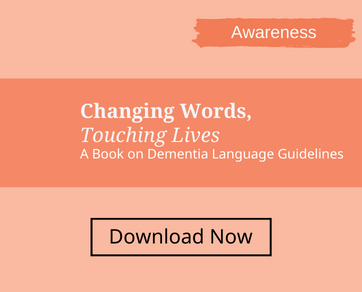Anosognosia
In some cases, your client’s struggle to acknowledge their condition does not stem from an active effort to deny the signs, but rather is due to an inability to understand that there is an impairment. Known as anosognosia, changes in the brain mean that the individual truly believes that there is nothing wrong with them. This can be frustrating to deal with as a care professional, but it is important that you acknowledge that this is not your client’s or anyone’s fault, and accept it for what it is.
With anosognosia, no amount of evidence will convince your client to accept their diagnosis. Instead, you will need to come up with care strategies working around this. As long as it does not pose a safety issue, it is okay to let them keep helping out around the house or their day activity centre.
If you believe that your client has anosognosia, it is important that the psychologist working with your client is consulted to ensure he/she gets a proper diagnosis. Medical professionals working with your client will also be able to better advise on how to proceed in such situations.
Fear
How Can I Encourage Someone to Seek Help for a Dementia Diagnosis?

Source: Dementia-Friendly Singapore

